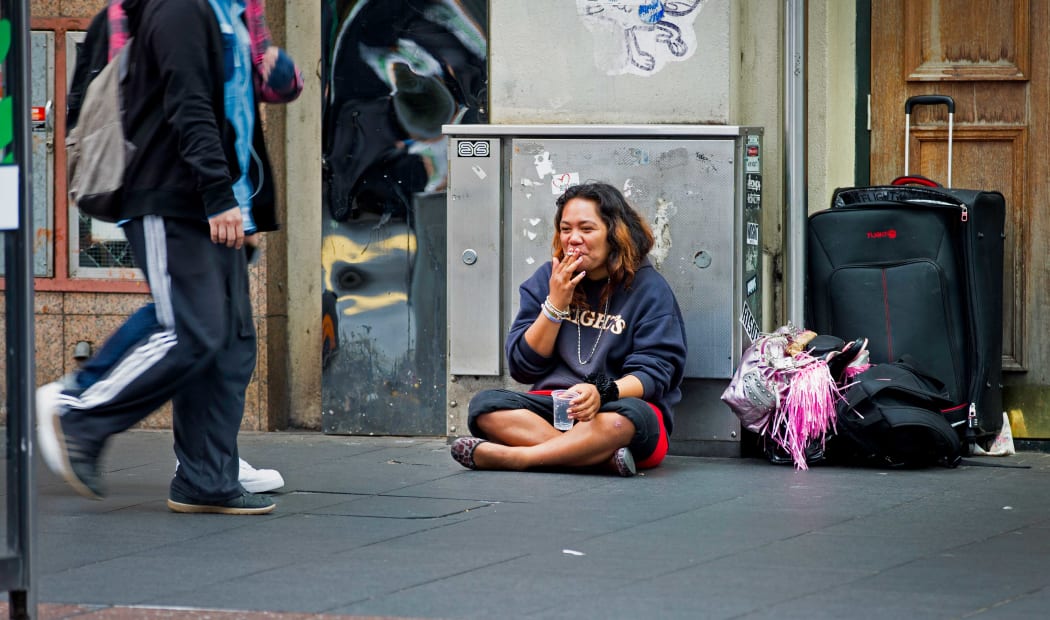
A woman begging in central Auckland. Photo: RNZ/ Diego Opatowski
Part of Radio New Zealand's Begging in New Zealand series
How should we respond both personally and as communities to the increase in begging?
Auckland, Christchurch and Wellington all face increasing numbers of people asking for money, and all of these cities are looking at ways of dealing with the issue.
Dame Diane Robertson from the Auckland City Mission says the number of people in Auckland begging is definitely increasing.
“It’s a bit like a tumble wind, once it starts, it starts to grow. You know three or four years ago we had very few beggars, then it becomes more acceptable and becomes more and more and more."
She says that there are people begging who use donations to supplement their benefits, those who have been stood down from benefits, and even those who chose not to accept benefits.
“There are some who have become alienated from Government agencies…. and they chose to withdraw because they don’t want to have to interact with those agencies."
Dame Diane says that people will start moving to suburbs such as Newmarket as begging becomes more and more prevalent in the city.

A man sleeps rough on Auckland's waterfront. Photo: 123rf
Christchurch City Councillor Paul Longsdale says the begging in his city's suburbs is already an issue.
He says they want to find out how big the problem is throughout the city, and develop a multi-agency approach to the issue.
The council is looking at other examples of how cities, like Melbourne, deal with beggars, he says.
Longsdale says there are a range of issues, such as homelessness and substance abuse that combine to make begging an option for some people.
"And some of it is because it’s actually quite lucrative."
Former youth worker Scottie Reeve says that there has been a marked increase in the number of people begging in Wellington.
The increase in young people begging has been particularly worrying, he says.
The need for young people to beg often comes from the fall between tertiary employment and working where they’re not going into anything, he says.
“They just don’t know how to get back into the system."
The three panellists talk to Nights presenter Bryan Crump about the issues facing each of their cities, and what they see as solutions to people begging on the streets.

